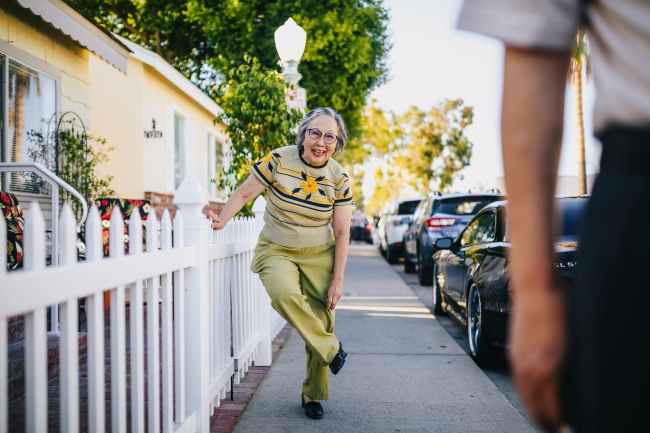This last year has been difficult for all of us, but perhaps older people more than any other group. They’ve been living in fear, taking all precautions to stay out of harm’s way, and many are missing social contact and normal life. At the best of times, retirees can find it hard to stay active.

The aches and pains that come with old age, a loss of motivation once they no longer have a job to go to, and perhaps a lack of social contact once the daily interaction with work colleagues has been left behind can make even the most basic exercise and activity difficult. This last year, having to stay at home more, and the mental and physical side effects of that, have made it almost impossible for older people.
As life gets back to normal, and the world starts to open up again, many of us have older relatives who are reluctant to get back out there. They’ve grown more sedentary, their fitness levels have dropped, and those normal aches and pains might have grown into something more concerning.

Physical activity, however, has countless benefits for any age group. For the elderly, a more active lifestyle can promote circulation, good mental health, better sleep, and even social interaction. So, here’s a look at how you can help elderly parents and other relatives to be more active.
Focus on Little and Often
As a young, fit person, when you want to exercise more, you might set yourself a large target like running a half marathon. Older people can’t do this. Instead, focus on little and often. Two 15-minute walks a day is a simple way to build calories, stretch and tone muscles, and get some fresh air. Household chores, gardening, seated exercises while watching TV, and gentle yoga can all help.

Give Them the Support They Need
The support your older relative needs might not be what you expect. If they are struggling with mobility, a walker that is great for posture while being supportive might help. Click here for a good example. They might need a companion to walk with, or a doctor to talk to about their concerns. They might just need a reason to get out, and for you to stop doing so much for them. Speak to them, find out what they need, and do your best to provide it.

Make it Sociable
Activity is often easier and more beneficial when you do it with someone else. That’s harder right now, but not impossible. Look for walking groups in their local area or even find groups online filled with people that they can share their experiences with. Even listening to the radio while pottering in the garden can feel more social than doing it in silence.
When trying to help an elderly person become more active, two of the biggest mistakes that we make are setting too high targets and increasing pressure, or assuming that they can’t do anything, and removing their independence. Start slowly with walks or gentle swims but give them a chance to make friends without you, stepping back when they are ready to go it alone or with new companions.




